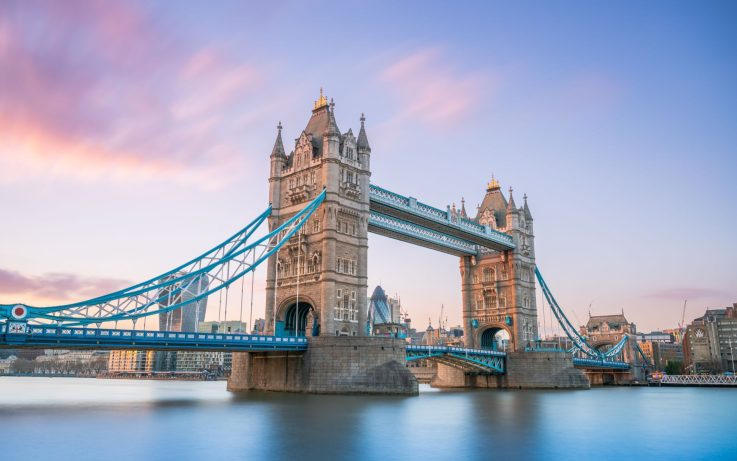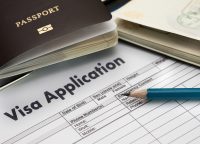UK Sponsorship licence for effective business development

The United Kingdom is known for its hospitality and always opens its doors to talented and skilled specialists of all nationalities who wish to work in the country. If you want to relocate to the UK for work or if you have a British company that needs to hire foreign specialists, this article is certainly worth reading.
To regulate the inflow of foreign temporary and permanent workers as well as pupils and students, the UK has developed a system of sponsorship licences that allow companies and educational institutions to accept foreign nationals.
What is sponsorship licence?
If you want to work in the UK, you need to understand that you will not be able to enter the country before you find a job. You need to be invited to the UK by a British employer. The UK immigration system allows only registered sponsors to hire foreign specialists. To become a sponsor, a British company must pass the Home Office checks and obtain a sponsorship licence. A sponsor can then issue certificates of sponsorship to foreign employees. They are required for visa application. The same rules apply to the citizens of all countries, including the EU. The only exceptions are:
- Swiss or other EEA citizens who entered the UK before 31 December 2020 and registered here before 30 June 2021;
- EU citizens with a settled or pre-settled status granted in line with the UK-EU agreements;
- Irish citizens who entered the UK before 31 December 2020.
The UK sponsorship system is reliable. It helps to control immigration and protect British domestic workers from unemployment. Only foreign workers from the shortage occupation list with the relevant skills and experience can be invited to the UK. It is also checked whether they have enough money to support themselves without applying for public benefits till they receive their first salary in the UK.
A potential sponsor must follow the British immigration rules to get a sponsorship licence and be able to issue certificates of sponsorship. To prepare for the Home Office checks, you can contact experienced immigration advisors who will be able to set up a sponsorship management system in your company in accordance with all the requirements.
What are sponsors’ obligations?
British sponsors must:
- Make a foreign employee a real job offer from the eligible occupation list based on the visa type;
- Guarantee at least the minimum salary during the whole employment period;
- Control the foreign employee’s performance and report to the Home Office any breach of the employment contract. For example, when an employee disappears, does not show up for work or refuses to work.
Requirements for sponsors
To become a sponsor, a British company must comply with the following requirements:
- Be registered in the UK;
- Conduct its main activity in the UK;
- Have no breaches of law, especially immigration and financial;
- Never have had its sponsorship licence revoked;
- Provide a foreign employee with an eligible occupation and at least the minimum salary.
Note that the requirements are different for the UK Expansion Worker route which is designed specifically for foreign entrepreneurs who set up a new UK subsidiary.
Types of sponsorship licences
Before submitting your application to the Home Office, you need to choose a suitable type of sponsorship licence:
- Permanent Worker sponsorship licence: designed for long-term employment contracts, for example, when there is an intracompany transfer, promotion to a leading position, or any other permanent assignment. This type of licence is also used to invite prominent ministers of religion and sportspeople;
- Temporary Worker sponsorship licence: designed for short-term working assignments that have a set execution period. For example, internships for students, seasonal work, or short-term contract work. Creative and charity workers, as well as scholars, can also be invited under such licence.
Some companies apply for both types of sponsorship licences to be able to hire foreign workers permanently and invite them on business trips to the UK.
In the UK, there are various visa categories, such as a UK Skilled Worker visa or a UK Expansion Worker visa. Each requires a particular sponsorship licence. Depending on the type and particularities of its business activity, a company identifies visas for foreign workers to come to the UK and then decides on the type of sponsorship licence. With a sponsorship licence, the company can issue certificates of sponsorship to foreign employees which they will use to apply for a visa.
Sponsorship management system
One of the requirements that a potential sponsor must meet is to set up a sponsorship management system. There are four key personnel roles. They can be filled by different people (in large companies, it reduces the workload and helps to distribute responsibilities more efficiently) or by one person (good for a small sponsor that is not going to invite a lot of foreign specialists).
Key personnel roles:
- Authorising officer – responsible for managing the company’s sponsorship licence and compliance with all the requirements set for sponsors;
- Key contact – responsible for representing the sponsor before the Home Office;
- Level 1 user – responsible for making updates in the sponsorship management system, requesting and issuing certificates of sponsorship, and informing the Home Office about any changes concerning the foreign staff. If a foreign employee does not turn up for work, a level 1 user has to report this to the Home Office;
- Level 2 user – responsible for preparing applications for certificates of sponsorship. They are usually appointed in large companies and have limited access to the sponsorship management system in comparison to level 1 users.
An authorising officer must be a company’s employee. Level 1 and level 2 users can either work in your company or be your official representative, for example, your immigration advisors. They will help you organise the processes smoothly and consider all the details so that the Home Office had no doubts about your reliability as a sponsor. Key personnel for sponsorship management must have clean immigration and criminal records. They also cannot own shares in a company that was a sponsor last year and lost their licence.
How to obtain UK sponsorship licence?
To obtain a sponsorship licence, you need to collect certain documents and apply to the Home Office. As a rule, you need to submit the following documents:
- Bank statements showing money flows for the previous year;
- Lease or sales agreement for your office;
- Taxpayer registration certificate;
- Audited annual accounts of the company.
The list of documents varies depending on the type of business, how it is run, the required visa category, etc. To save time and prepare all the required documents in advance, it is recommended to contact immigration advisors. They will check whether your company meets all the requirements, identify any weaknesses, if any, and help to deal with them. If there are any matters of concern, they will prepare an action plan for you so that you could be 100% sure of the outcome and could answer all the questions.
Sometimes, the Home Office sends people to inspect the company’s premises and see all the processes with their own eyes. All these measures help the UK government to control the issue of licences and ensure full compliance with the current regulatory requirements.
Applicants for a sponsorship licence need to pay an application fee. It ranges from £536 to £1,476 and depends on the type of licence and size of the company. An application normally takes up to eight weeks to get processed. If you need to accelerate the procedure, you can use a fast-track option for an additional £500. However, this service does not apply to all visa categories; for example, it is not available for a UK Expansion Worker route. Once issued, a sponsorship licence is valid for four years and can be extended if required.
Rating system for sponsors
When a company gets a sponsorship licence, it is expected to follow all the rules related to sponsorship management and the issue of certificates of sponsorship.
The UK carefully monitors whether you perform your duties as a sponsor. Based on the results of regular inspections, your company can be downgraded from an A-rating to a B-rating:
- А-rating: your company fulfils its duties and can issue certificates of sponsorship;
- B-rating: your company has failed to meet some of the mandatory requirements and temporarily cannot issue certificates of sponsorship (it can still sponsor the foreign specialists who have already been employed). After you receive the inspection results, you have ten days to apply to the Home Office for an action plan. It is compiled for additional payment and includes the relevant corrective actions. As a sponsor, during the four years, while your licence is valid, you can be downgraded not more than two times. Otherwise, you will lose your licence. To become a sponsor again, you will have to wait for a year.
Certificates of sponsorship
A certificate of sponsorship (CoS) is a mandatory electronic document for applicants of all work visa categories created using the sponsorship management system. All data needed for a CoS are entered into the system, and a foreign specialist is given a unique identification number for their CoS.
There are two types of certificates of sponsorship: defined and undefined.
Defined certificates are issued for foreign specialists who are outside the UK.
An employer applies to the Home Office for a certificate of sponsorship for a particular specialist, and once it is received, the specialist may apply for a UK Skilled Worker visa. Until recently, a sponsor was permitted to issue only a limited number of certificates of sponsorship a year. Now, it is possible to apply for an unlimited number of certificates of sponsorship using the sponsorship management system.
Undefined certificates are issued for those who are already inside the UK and are switching to a UK Skilled Worker visa from another visa category. A sponsor may apply to the Home Office for an unlimited number of undefined certificates for job candidates who then may apply for a UK Skilled Worker visa. Undefined certificates are issued for a year and are valid for a tax period which runs from 5 April of the current year to 6 April of the following year. If a sponsor does not use them, they are cancelled.
Requirements for foreign specialists
Before issuing a certificate of sponsorship to a foreign specialist, you need to thoroughly check their background. They must be able to meet all the Home Office requirements for visa applicants, including a certain level of qualifications, experience, clean immigration and criminal records, etc.
Obtaining UK sponsorship licence
When a UK company or subsidiary wants to expand its business, it often needs new employees with specific experience who can be sometimes only hired outside the UK or invited here for a short period. To employ foreign specialists, the company needs to obtain a sponsorship licence and issue certificates of sponsorship to foreign workers. Our immigration advisors will help you collect the required documents and fill in the application correctly. Thanks to our years-long experience and wide network, you will be able to significantly reduce the time and money spent on it. This will obviously contribute to the success of your business.
FAQ about UK Sponsorship Licence
How long are short-term certificates of sponsorship valid for?
With a Temporary Worker sponsorship licence, you can invite the following specialists:
- sporting workers;
- creative workers (actors, actresses, and artists);
- charity workers;
- religious workers;
- interns;
- scholars who participate in scientific meetings and conferences;
- seasonal contract workers.
Short-term certificates of sponsorship are valid for 6–24 months. For more information, you need to contact qualified immigration advisors.
How can a Temporary Worker sponsor invite specialists on a long-term visa?
To hire specialists for a long period of time, you need to obtain a Permanent Worker sponsorship licence. It is a common practice to expand the scope of the existing sponsorship licence. For this, you need to contact the Home Office and fill in the relevant application. Medium- and large-sized companies will have to pay £940 to switch to a long-term sponsorship licence. Small-sized companies can do so for free.
What companies are classified as small-sized?
A business is a small sponsor if at least two of the following three criteria apply:
- Annual turnover up to £10,200,000;
- Total assets value up to £5,100,000;
- Number of employees up to 50 people.
What are the requirements for UK Skilled Worker visa applicants?
You can apply for a UK Skilled Worker visa if you meet the following requirements:
- You are older than 18;
- You have a clean criminal record;
- You have a clean immigration record and have never been banned from entering the UK;
- You are of good health (citizens from some countries need to provide a negative tuberculosis test);
- You have good knowledge of English that you can confirm with an English test;
- You have a relevant education and/or are a qualified specialist.
Note that you will be limited in your choice of occupation by the shortage occupation list. It includes in-demand jobs, such as healthcare workers, police staff, engineers, scholars, managers, social workers, firefighters, etc. You can search for available occupations on the government website using a four-digit occupation code. Your sponsor must offer you at least the minimum salary defined in the list. Otherwise, you will not get a UK visa.







